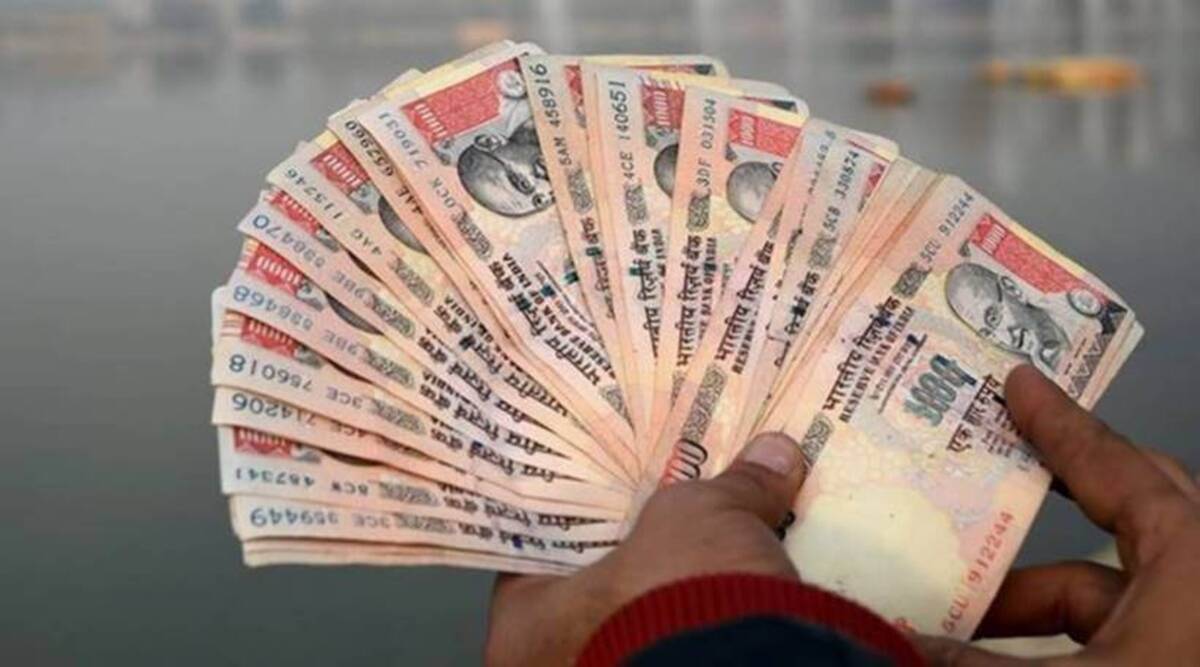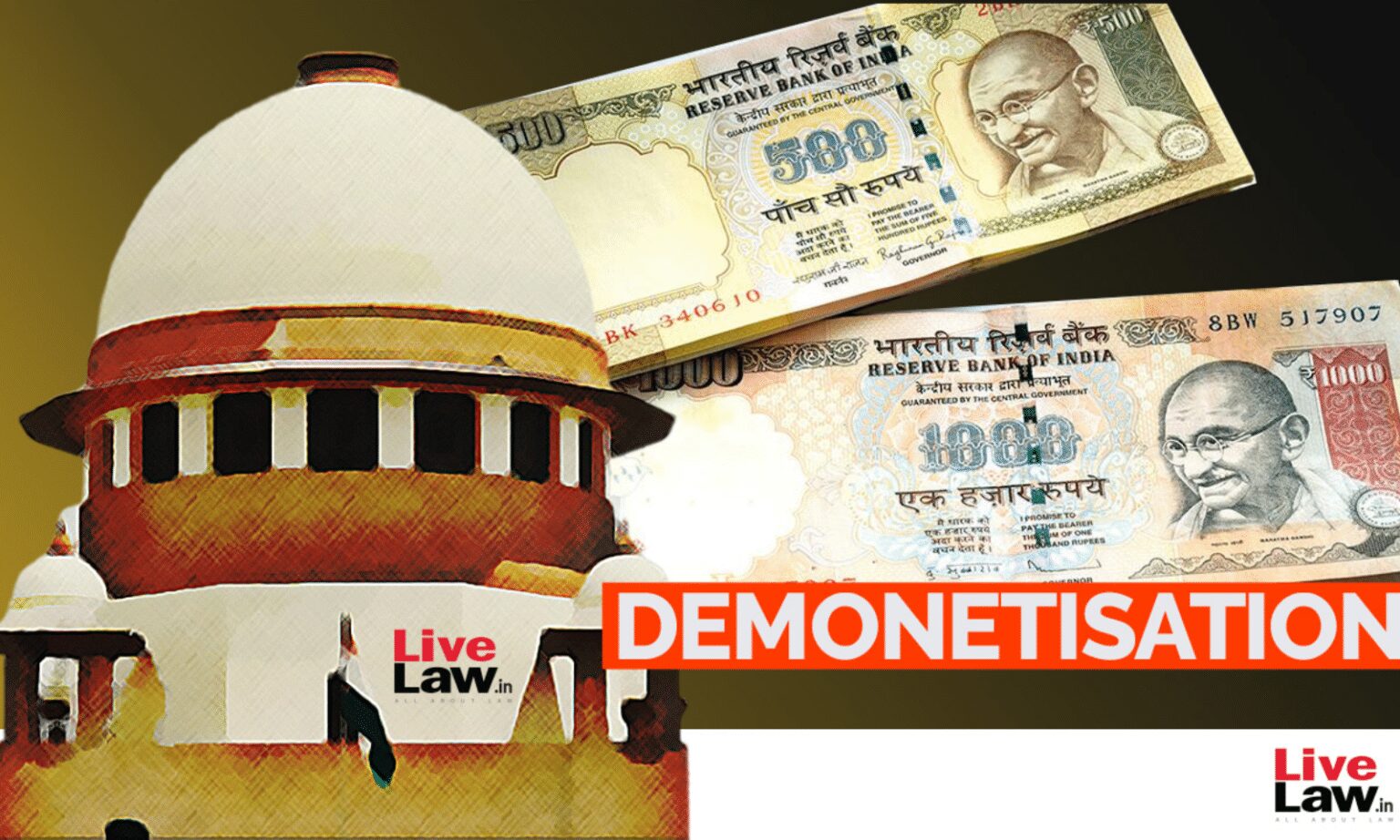demonetization
By- G Brinda
The Centre and the Reserve Bank of India (RBI) were ordered by the Supreme Court (SC) on Wednesday to submit thorough affidavits regarding the 2016 demonetization decision and to keep the files related to the Centre’s letter to the RBI, the RBI board’s decision, and the demonetization announcement ready.
The petitioners’ primary claim, according to the bench, is that Section 26 of the RBI Act does not provide the Center the right to entirely revoke currency notes of a certain denomination. The bench also included Justices BR Gavai, AS Bopanna, V Ramasubramanian, and BV Nagarathna. Therefore, the primary issue is whether the government has the authority under Section 26 to demonetize all notes with a denomination of Rs. 500 and Rs. 1,000, the judgment said.
The Supreme Court declared on Wednesday that it would investigate the decision-making procedure that led to the 2016 demonetization exercise. It also requested thorough affidavits from the central government and RBI regarding the decision, which had then resulted in “horrendous consequences and big disruption to the informal sector.”

A five-judge Constitution bench, presided by Justice S. Abdul Nazeer, also requested that the Union government retain all relevant documents, including as the letter the central government sent to the RBI, the RBI Board’s ruling, and the announcement of the demonetization, available for its review.
The justices stated that “we always know where the Lakshman Rekha is, but the manner in which it was done needs to be scrutinized” as they posted more than 50 petitions challenging the 2016 decision to devalue currency for further hearing on November 9.
While Attorney General R Venkataramani and Solicitor General Tushar Mehta, representing the Centre, claimed that the matter had turned into an academic exercise at this point, the SC bench stated that since both sides were not in agreement, it was necessary to examine the situation in order to determine whether the exercise was academic or infructuous.
The bench, which also included Justices BR Gavai, AS Bopanna, V Ramasubramanian, and BV Nagarathna, underlined that it is the court’s responsibility to respond to constitutionally significant questions that are presented to it.
For the petitioners, senior lawyer P Chidambaram and other attorneys contended that Section 26 of the RBI Act does not permit the Center to totally invalidate currency notes of a certain denomination, such as the Rs. 500 and Rs. 1,000 notes. They said that the government lacked the authority to ban currency notes by executive order and that the issue persisted into the future in light of the disastrous effects the 2016 decision had on the economy and the general populace.
The AG claimed that the notices cannot be contested unless the High Denomination Bank Notes (Demonetisation) Act, established in 1978, is properly challenged. Otherwise, the matter would largely stay academic.
Chidambaram countered that, in contrast to the 2016 decision, the 1978 demonetization was carried out under a separate Act of Parliament. He questioned if a separate statute passed by the Parliament was necessary for a demonetization of this nature, which involved removing 86% of the currency notes in circulation. On December 16, 2016, a bench under the leadership of the then-Chief Justice TS Thakur forwarded the issue of the decision’s legitimacy as well as other matters to a bigger bench of five judges for final determination. It had raised a number of issues, such as whether the November 8, 2016, announcement violated the RBI Act’s 1934 provisions and if it did so in violation of Article 300 (A) of the Constitution, which states that no one may be dispossessed of their property except by the authority of law.
The Center’s 2016 decision to implement demonetization is being contested in more than 50 petitions before the highest court. If the issue still exists today, the Supreme Court had on September 28 asked the petitioners contesting the Centre’s decision to demonetize the Rs. 500 and Rs. 1,000 notes in November 2016.

The problem has now turned into an intellectual exercise, according to Attorney General (AG) R Venkataramani and Solicitor General Tushar Mehta. A petitioner’s representative, senior counsel P Chidambaram, said that the government’s judgment is still subject to dispute as being genuine. The petitioners’ attorney emphasized that the matter was still significant in the future and that the government lacked the authority to revoke the currency notes by executive order.
In contrast to the 2016 judgment, Mr. Chidambaram said that the 1978 demonetization was accomplished by a separate Act of Parliament. He questioned if a separate statute from the Parliament was necessary for a demonetization of this magnitude, which removed 86% of the currency notes in circulation.
The bench stated that because both sides do not agree, it is necessary to look at the issue of whether the exercise is academic or fruitless. It claimed to be aware of the location of the “Lakshman Rekha,” but in order to assess how this activity was carried out, it must first hear from the attorneys.













